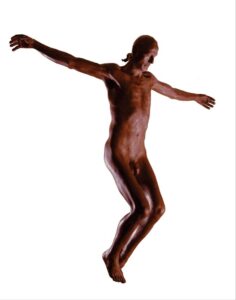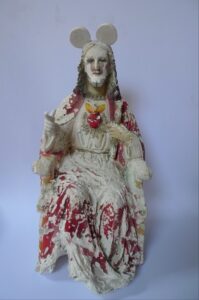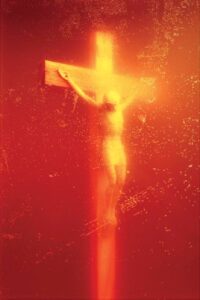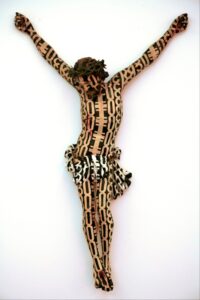Canadian PM Justin Trudeau recently commented on the tragic murder of a French teacher, 47-year-old teacher Samuel Paty, who had used the caricatures of the Prophet Mohamed as a teaching tool during a classroom discussion of free speech. He was beheaded.That action appears to have incited the attack against him by an 18-year-old Chechen refugee previously unknown to French intelligence services.
French President Macron had attracted the ire of Turkey’s Erdoğan and others after a speech he gave at the beginning of October on fighting Islamist extremism in France, and again after he defended the freedom to publish cartoons that others consider to be offensive after Paty’s killing two weeks later.
Trudeau’s response to the attacks: “We will always defend freedom of expression…But freedom of expression is not without limits. We owe it to ourselves to act with respect for others and to seek not to arbitrarily or unnecessarily injure those with whom we are sharing a society and a planet.”
“We do not have the right for example to shout fire in a movie theatre crowded with people, there are always limits,” he argued.
Trudeau pleaded for a careful use of free speech.
“In a pluralist, diverse and respectful society like ours, we owe it to ourselves to be aware of the impact of our words, of our actions on others, particularly these communities and populations who still experience a great deal of discrimination,” he said.
At the same time, he said society is ready for a public debate on these issues, “to have these complex conversations in a responsible way.”
Prime Minister Justin Trudeau was pressed to clarify comments he made about the limits of free speech.
“I think it is important to continue defending freedom of expression, freedom of speech. Artists help us reflect and challenge our views and they contribute to our society and we will always continue to defend freedom of expression. Freedom of expression is not unlimited. For example, it’s not allowed to cry ‘fire’ in a packed cinema. In a respectful society such as ours, everyone must be aware of the impact of our words and actions on others.
There are communities experiencing huge discrimination in Canada, today. So yes, we will always defend freedom of expression, but everyone must act respectfully toward others and not try to needlessly or arbitrarily hurt someone we share this planet and society with.”
This series of bloodletting in France had begun Sept. 25 when a young Pakistani refugee injured two people outside the former Charlie Hebdo newsroom office in Paris. The initial publication of those cartoons in January, 2015 by the French satirical magazine Charlie Hebdo inspired a terrorist attack that killed 12 of the magazine’s staff. Following the death of Paty, a young Tunisian man killed three people inside the basilica in the southern city of Nice, beheading one woman
Well respected publisher of Convivium, Peter Stockland, took umbrage with Trudeau for “walking back” his initial statement about the limits on free speech, giving rights, I guess, to artists. Stockland wrote:
“The critical purists, libertarians and opportunists I’ve read seem blind to, or deliberately swerve away from, the Prime Minister’s entirely reasonable and perfectly valid point. The French government’s response to renewed jihadist violence only risks provoking fresh bloodshed by perpetuating the bizarre idée fixe that freedom of speech trumps even reckless baiting.”(Emphasis mine)
So should we blame Samuel Paty for his beheading?
He also shared the views of Amira Elghawaby, journalist and the communications director at the National Council of Canadian Muslims (NCCM). NCCM is the Canadian version of CAIR.
On the one hand, CAIR officially champions ‘freedom of speech and expression’ (as stated on their website as one of its core principles) when it comes to defending like-minded academics and backing, for instance, the BDS (Boycott, Disinvestments, Sanctions) movement. On the other hand, the same support for free speech seems to vanish when it runs counter to its own political agenda.(Emphasis mine)
On June 2, 2020, CAIR filed a lawsuit in Arizona federal court against Maricopa Community College District and Professor Nicholas Damask, condemning the use of course materials which have, accordingly to CAIR, “the primary effect of disapproving of Islam.” CAIR cited a quiz in Damask’s online class in which links between Islamic doctrine and terrorism were made.
On October 19, 2011, CAIR co-signed a letter asking officials in US President Barack Obama’s administration to “purge all federal government training materials of biased materials (against Islam)” and “implement a mandatory re-training program for FBI agents, US Army officers and all federal, state and local law enforcement who have been subjected to biased training.” The letter was positively received by the Obama administration.
Ms. Elghawaby:
“So defence of laïcité, and the French Republic, has come down to condemning kosher and halal, and defending crude cartoons. Would (President) Macron be defending, in the name of free speech, fascist anti-Semitic texts, or racist caricatures against Blacks and other minorities, or homophobic screeds,”
to which Stockland replied:
“I’m guessing not. I’m guessing not even the shimmering allure of unbridled free speech could move any French politician outside the wackier reaches of the National Front to do that. Wisdom, prudence, not to mention basic decency and respect for the difference of fellow citizens would militate against it.”(Emphasis mine)
I don’t know about fascist anti-Semitic texts, or racist caricatures against Blacks and other minorities, or homophobic screeds. But how about Christians? Would anyone defend attacks on Christianity as free speech? Seems so.
When it comes to degrading, demeaning, disrespectful art work of Jesus, where is the call for limiting free speech? Where is the cry for tolerance? Where are Peter Stockland and Amira Elgawaby? Where is Trudeau?
Russell Oliver painted Jesus as a slaughtered lamb’s head. He tells The Creators Project, “The Monstrosity of Christ is my critique of Christianity as a cult of human sacrifice—one of scapegoating and vicarious redemption.”
Similarly, Cosimo Cavallaro’s six-foot chocolate statue of Jesus remarks on the tie between Christianity and global consumer trends.
As Cavallaro tells The Creators Project, “My Sweet Lord is the symbolic representation of the intermingling of Christian religion with industry, tread, globalization, and our addiction to the sinful sweet sacrament of chocolate.” These pieces are not without their negative reactions; My Sweet Lord was described by the head of the Catholic League, Bill Donohue as “One of the worst assaults on Christian sensibilities ever.”
Then there is this depiction. Jesus Christ with Mickey Mouse ears.
One of the most famous controversial depictions of Christ has to be Andres Serrano’s Piss Christ, a photograph of a plastic, crucified Christ figure, submerged in the artist’s urine. By using raw, human waste to represent and stand beside divine concepts, Serrano makes Biblical reference to the mortal body and blood of Christ.

And this. Read the letters on the arm on the left side of the photo

Here is the confident response to such “unholy” depictions of Jesus.
“Whether you accept, understand—or even enjoy—these depictions or not, the controversial images continue to remind us that, as a tolerant society, we must protect a freedom of speech, opinions, and beliefs of both believers and non-believers. After all, artistic representation has arguably a longer history than any religion or faith.” (Emphasis mine)
What would Trudeau, Stockland and Ms. Elghawaby in response to that statement?
Has any Christian beheaded those who attack Jesus? Have there been bombings? Has there ever been fear of such attacks for the audacity to poke fun at Christian symbols?
It appears that we, in the West, must be tolerant of attacks on our values and culture in the name of free speech, but limit free speech when it comes to criticizing or poking fun at Islam.
Why is that?
From the Ethics of the Fathers: “Rabbi Tarfon used to say, it is not incumbent upon you to complete the task, but you are not exempt from undertaking it.”


